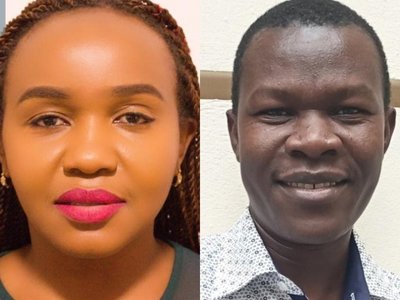

The Kenyan aquaculture industry has the potential to provide food security and alleviate poverty thanks to the vast natural water resources. However, the sector has been inhibited by lack of available information, inadequate institutional capacity and limited awareness. In order to bridge the knowledge gap among extension workers and other stakeholders in this sector diverse trainings are provided, the topics range from ecosystem-based practices, post-harvest loses, disease management, gender-sensitive approaches to value chain management and entrepreneurship. In future stakeholders will able to deliver information as well as tools to engage farmers in sustainable fish farming activities.
The project proposal was submitted within the Orange Knowledge Programme financed by the Dutch organisation for internationalisation in education (Nuffic). It is jointly implemented between Makueni County, Kenya (which was the requesting organisation) and the Dutch organisation Q-point. Together with other international trainers the two APPEAR scholars give lectures. Sonnia Nzilani Musyoka is in charge of coordinating the technical aspect of the programme as well as providing training on aquaculture production systems, pond management practices, scarcity of water, fish diseases and predators and aquaculture inputs, while Kevin Odhiambo Obiero teaches aquaculture policy and guidelines, gender mainstreaming, value chains and entrepreneurship.
The training lasts four weeks (4 days training), spread over a period of nine months. The 20 participants (10 males and 10 females) are drawn from the Makueni county department of livestock and fisheries. The programme chose to include the gender responsive approach because women in developing countries are generally faced with economic, social and cultural constraints in food security. The training uses the following methodological approach: interactive participatory approach, inventory of specific needs, training of trainers approach, ownership and problem-based learning. Through their skills and knowledge Sonnia Nzilani Musyoka and Kevin Odhiambo Obiero contribute to improve ecosystem-based management practices and responsible aquaculture towards environmental sustainability
Sonnia Nzilani Musyoka is a PhD researcher at the University of Natural Resources and Life Sciences, Vienna (BOKU). She is employed in Kenya at the South Eastern Kenya University. Furthermore, Sonnia is a technical committee member of the Kenya accreditation service, Kenyan coordinator for the Dutch based consulting firm Q-point, works as a senior consultant at Human Development International, as technical expert and is a trainer and auditor for sustainable aquaculture at DNV-GL Kenya. She has travelled widely and has more than 10 years of local and international experience in consultancy and training on capacity building for fisheries and aquaculture as well as climate smart agricultural practices towards sustainable livelihoods.
Kevin Odhiambo Obiero is currently pursuing his PhD studies at the University of Natural Resources and Life Sciences, Vienna (BOKU), focusing on the role of extension systems in innovating aquaculture in Kenya, within the framework of the STRECAFISH project. Kevin is a research scientist at Kenya Marine and Fisheries Research Institute (KMFRI), based at Sangoro Aquaculture Research Station, where he is in charge of research programmes. To upgrade his skills and professional experience, Kevin has attended several short courses and training programmes at international level.
